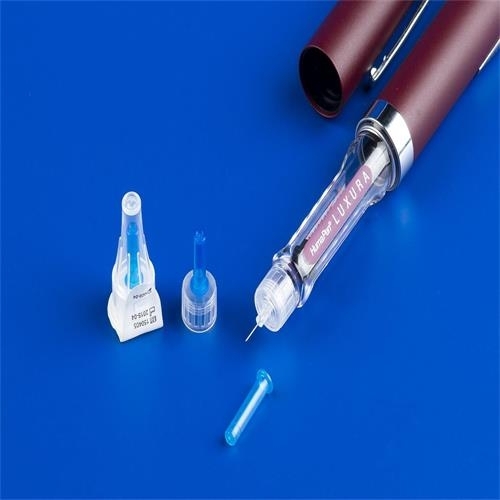Let’s talk insulin.
Mention the “I word” to some low carbohydrate dieter, or even a clean eater, and you’ll virtually see them turn white as the blood drains off their face in abject horror.
To them, insulin will be the big crook from the nutrition world.
They talk about insulin as “the storage hormone” and believe that any amount of insulin by the body processes will immediately lead you to lay down new fat cells, put on weight, and lose any degree of leanness and definition.
Fortunately, that is not quite the truth.
In reality, while simplifying things with regards to nutrition and training is frequently beneficial, this is the gross over-simplification from the role of insulin in the human body, and the truth is entirely different.
Far from being the dietary devil, insulin is really absolutely nothing to be afraid of at all.
What Insulin Does
The first part in the insulin worrier’s claim (that insulin is a storage hormone) holds true – one of insulin’s main roles would be to shuttle carbohydrate that you eat across the body, and deposit it where it’s needed.
That doesn’t mean that every the carbs you eat are stored as fat though.
You store glycogen (carbohydrate) within your liver, good tone muscles cells plus your fat cells, and it’ll only get shoved into those pesky adipose sites (fat tissue) in the event the muscles and liver are full.
Additionally, unless you have a calorie surplus, you merely cannot store excess fat.
See it by doing this –
Insulin is much like the employees within a warehouse.
Calories will be the boxes and crates.
You might fill that warehouse fit to burst with workers (insulin) but if there aren’t any boxes (calories) to stack, those shelves won’t get filled.
And if you’re burning 3,000 calories per day, and eating 2,500 calories (or perhaps 2,999) the body can’t store fat. No matter whether those calories originate from carbs or sugar, you do not store them, because your body needs them for fuel.
Granted, this would not be our planet’s healthiest diet, but as far as science can be involved, it comes to calories in versus calories out, NOT insulin.
It is not just Carbs
People fret over carbs getting the biggest effect on insulin levels, and how carbohydrate (particularly of the simple/ high-sugar/ high-GI variety) spikes insulin levels, but a lot of other foods raise insulin too.
Whey protein concentrate, as an example, is especially insulogenic, and will result in a spike, particularly if consumed post workout.

Dairy products too have a relatively large effect as a result of natural sugars they contain, as well as fats can raise insulin levels.
Additionally, the insulin effect is drastically lowered during the day a mixed meal – i.e. one which contains carbs plus protein and/ or fat.
This slows the digestion along with the absorption in the carbs, resulting in a much lower insulin response. Add fibre into the mix too, and the raise in insulin is minimal, so even if we had been concerned with it before, the perfect solution is is not hard – eat balanced, nutrient-dense meals, and you also don’t need to worry.
Insulin Builds Muscle
Finding comfort the thought of insulin being a storage hormone, and also the notion that it delivers “stuff” to cells:
Fancy taking a guess at what else it delivers, beside carbohydrate?
It delivers nutrients to your muscle cells.
Therefore, if you’re forever continuing to keep insulin levels low for anxiety about fat gain, it’s highly unlikely you’ll get ripped optimally. It’s for this reason that I’d never put clients seeking to get ripped and earn lean gains with a low-carb diet.
No Insulin Can continue to Equal Fat Storage
Despite all of the low-carb diet practitioners once again, it’s possible to store fat when levels of insulin are low.
Fat when consumed in the caloric surplus is in fact transformed into body fat tissue much more readily than carbohydrates are, showing that after again, excess weight or weight loss is dependant on calories in versus calories out, not insulin levels.
Why low-Carb (and Low-Insulin) Diets “Work”
Many folk will point towards scientific and anecdotal proof of low-carb diets doing its job reasoning in order to keep levels of insulin low.
I won’t argue – a low-carb diet, where insulin release is kept as small as possible can certainly work, however this has hardly any regarding the hormone itself.
Once you cut carbs, you typically cut calories, putting you into a deficit.
Additionally, an average joe will eat more protein and much more vegetables when going low-carb, in order that they feel far fuller and consume less food. Plus, protein and fibre have an increased thermic effect, meaning they really use up more calories during the digestion process.
Bottom Line: Insulin – Not Bad In fact
There’s no need to bother about insulin should you –
Train hard and regularly
Follow a balanced macronutrient split (i.e. ample protein and fat, and carbs to suit activity levels and private preference.)
Are relatively lean.
Eat mostly nutrient-dense foods.
Have zero difficulty with diabetes.
You can still store fat with low insulin levels, and you’ll burn off fat and create muscle when insulin is found.
Looking at insulin in isolation as either “good” or “bad” really is a prime demonstration of missing the forest to the tress, so relax, and let insulin do its thing when you focus on the real picture.
More details about Ozempic cost in Canada please visit site: read.
